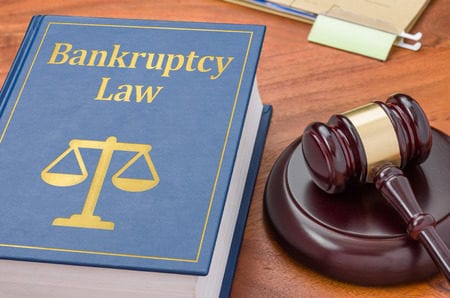
| CHAPTERS | WAITING PERIOD |
| 7 TO 7 | 8 YEARS FROM PREVIOUS FILING |
| 13 TO 13 | 2 YEARS FROM PREVIOUS FILING (CASE MUST BE CLOSED) |
| 7 TO 13 | 4 YEARS FROM PREVIOUS FILING |
| 13 TO 7 | 6 YEARS FROM PREVIOUS FILING UNLESS 100% OF THE UNSECURED WERE PAID IN THE PRIOR CHAPTER 13 OR AT LEAST 70% OF THE UNSECURED DEBTS WERE PAID IN THE PRIOR CHAPTER 13 AND THE PLAN WAS PROPOSED IN GOOD FAITH |
The above chart represents the period of time a debtor must wait between the filing of various chapters of bankruptcy in order to receive a Discharge in a subsequent bankruptcy. If the debtor did not receive a Discharge in the prior bankruptcy then the waiting period is generally not applicable. The only exception is the situation in which a debtor files a Chapter 13, receives a Discharge, and then files a Chapter 7 bankruptcy. The 6 year waiting period is not required to receive a Discharge in the Chapter 7 bankruptcy if the debtor, in the Chapter 13 bankruptcy paid either 100% of the unsecured creditors in the prior Chapter 13 or at least 70% of the unsecured debts were paid in the prior Chapter 13 and the plan was proposed in good faith. One can generally surmise that the plan was proposed in good faith if the bankruptcy judge confirmed the prior Chapter 13.
Remember, the waiting period begins with the FILING of the previous bankruptcy and not when the Discharge is received in the previous bankruptcy. This is a source of confusion or misunderstanding among even many bankruptcy practitioners.
Also, the waiting period is the time in which the debtor must wait between a prior bankruptcy Chapter in which the debtor received a Discharge and a subsequent Chapter in which the debtor wishes to receive a Discharge. There are numerous situations in which it is not important that the debtor receive a Discharge. For example, a debtor may file a Chapter 7 bankruptcy and receive a Discharge in the Chapter 7. Subsequently, the debtor may file a Chapter 13 bankruptcy in order to pay for example mortgage arrearages or certain priority creditors (which generally must be paid in full). In such a situation it may not be important that the debtor receive a Discharge in the subsequent Chapter 13. The debtor is simply employing the Chapter 13 bankruptcy, for example, to stop a foreclosure on his or her home, and pay the arrearages through the Chapter 13 bankruptcy plan. A Discharge is not important. For such a debtor, the only important quality of the Chapter 13 bankruptcy is that it prevents further foreclosure proceedings on his home or real property and permits him to cure the arrears through the Chapter 13 bankruptcy.
Weller Legal Group PA provides representation of debtors in bankruptcy. Our attorneys and paralegals have experience and training in not only bankruptcy matters, but also alternatives to bankruptcy such as debt settlements, mortgage modification, creditor harassment issues, foreclosure defense, consumer protection, and credit repair. With offices in Clearwater, Port Richey and Lakeland, Weller Legal Group is the premier law firm in the Tampa Bay area providing such representation.
Image credit: zerbor

